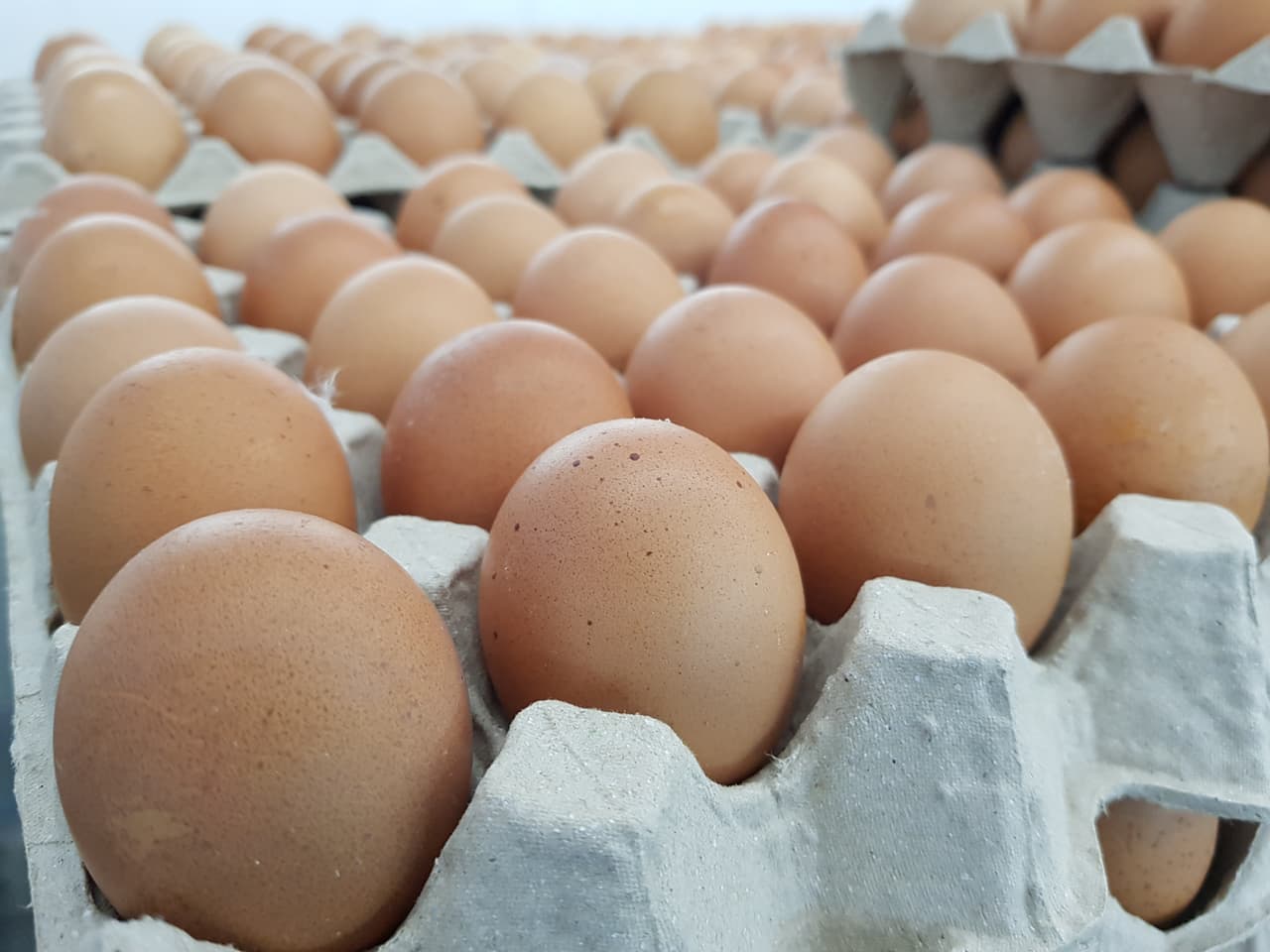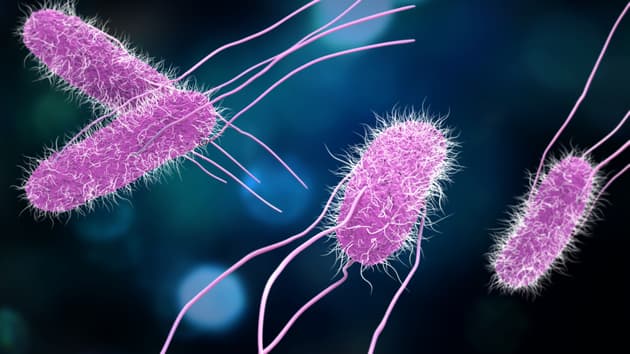
Exclusive: At least 100 cases of salmonella poisoning from British eggs
Dozens of people have been poisoned after eating British eggs contaminated with one of the most dangerous forms of salmonella, the Bureau can reveal, despite government assurances that the risk had been virtually eliminated.
There have been at least 100 cases recorded in the past three years, and 45 since January, in a major outbreak that health officials have traced back to contaminated eggs and poultry farms. Salmonella can cause food poisoning and in the most serious cases can kill.
Despite outbreaks of this strain occurring for more than three years, the government has issued no public warnings about the safety of hens’ eggs. In 2017, the Food Standards Agency (FSA) told the public that it was safe for vulnerable people, including pregnant women, the elderly and children, to eat raw, runny or soft-boiled eggs. At the time the head of the FSA said: “The risk of salmonella is now so low you needn’t worry.”
Internal records obtained by the Bureau show that 25 egg-laying poultry flocks in the UK have tested positive for salmonella this year. Seven were contaminated with the most serious strains of the bacteria, including Salmonella enteritidis, the strain behind this major outbreak. Two egg-packing factories — one of which supplies leading supermarkets — have also been contaminated.
 Salmonella bacteria are found in the guts of livestock, including chickens
Shutterstock
Salmonella bacteria are found in the guts of livestock, including chickens
Shutterstock
Eggs from the infected flocks were kept from sale and either sent for processing to kill the bacteria or disposed of, while the birds were culled.
However, contaminated eggs still reached the public, with Public Health England (PHE) confirming 45 people had been poisoned since January. The exact route to the public is unclear. PHE told the Bureau it was not aware of any deaths.
An egg business that supplies major supermarkets is among those contaminated by the bug. One of Fridays Ltd’s egg-packing factories was temporarily closed this year to deal with salmonella, which has also been found on three farms that supply the business. The company, which produces 10m eggs a week, confirmed it had removed the farms from its supply chain and disinfected the factory.
Fridays said in a statement: “Like all responsible UK egg farmers and egg packers, we carry out regular testing of our firms and those of our suppliers … Salmonella occurs naturally in the environment. However, with regular precautionary testing, vaccination of hens and rigorous control procedures, its prevalence in farming can be minimised.”
Public Health England told the Bureau that it had been investigating this strain of salmonella for three years. The Bureau has established that in 2018 28 flocks tested positive for salmonella, four of them with dangerous strains.
This means that PHE knew of poisoning cases even as the FSA declared that almost all eggs produced in the UK were free of salmonella, and that it was safe once again for those vulnerable to infection to eat raw eggs.
In October 2017 the FSA said that the presence of salmonella in eggs had been “dramatically reduced” and that British Lion eggs — which make up about 90% of UK egg production — were safe to eat.
At the time Heather Hancock, the chairwoman of the FSA, said: “We are now saying if there is a British Lion egg, you’re safe to do that. The risk of salmonella is now so low you needn't worry. And that’s true whether you’re a fit healthy adult, or whether you're pregnant or elderly or young. It’s only people on strictly medically supervised diets who need to avoid those eggs.”
Today the FSA confirmed the outbreak to the Bureau. A Defra spokesperson added: “We take the safety of the nation’s food extremely seriously. The Food Standards Agency and Animal and Plant Health Agency (APHA) are investigating and taking action to control this outbreak alongside industry, Public Health England and local authorities.”
The British Retail Consortium, which represents major supermarkets, said: “Food safety remains a top priority for UK retailers and all UK sourced eggs are produced to the Lion code of practice. Retailers will comprehensively investigate any safety issues in our food supply and will take swift action as necessary.”
 In 2017 the FSA said eating lightly cooked eggs was safe, even for vulnerable groups
Shutterstock
In 2017 the FSA said eating lightly cooked eggs was safe, even for vulnerable groups
Shutterstock
What is salmonella?
Salmonella bacteria is found in the guts of poultry and livestock. It is one of the most common causes of food poisoning, often caught from eating or touching undercooked meat, poultry and eggs. If the bacteria find their way into manure or sewage, they can in turn affect vegetables, fruit and shellfish.
In humans, salmonella poisoning can be life-threatening, particularly in infants and the elderly. It causes diarrhoea, vomiting, stomach cramps and a high temperature, and severe cases require hospital treatment. Cases where the infection spreads from the intestines to the blood and other parts of the body can result in death, if not properly treated with antibiotics.
A history of scandal
1988 – Edwina Currie, then a junior health minister, starts a major scandal when she claims that “Most of the egg production in this country, sadly, is now affected with salmonella.” Her comments cause sales of eggs to plummet overnight and she resigns. Two million hens are eventually slaughtered and the government introduces legislation to improve hygiene in hen houses.
1989 – Eggs are shown to be the likely source of three consecutive outbreaks in people in Wales. The link between salmonella and eggs becomes hard to deny.
1998 – Unpublished research commissioned by the Department of Health finds that virtually the same number of eggs contained salmonella in 1996 as in 1991, despite the measures taken to combat the problem after the Currie scandal. The egg industry launches the British Lion code of practice to rebuild consumer confidence by certifying the safety of eggs sold with that stamp.
2001 – A Whitehall report written months after Currie was forced to resign is published, showing she had been largely correct. The study by the Ministry of Agriculture, Department of Health and the British Egg Industry Council said that Britain was experiencing a “salmonella epidemic of considerable proportions” in late 1988.
August 2017 – Four major supermarkets withdraw eggs from their shelves after discovering 700,000 Dutch-produced eggs that had been sold to Britain are implicated in a salmonella scare.
October 2017 – Food Standards Agency announces almost all UK-produced eggs are virtually free of salmonella, and revises its advice to say pregnant women, babies and elderly people can safely eat runny or raw eggs.
November 2018 – It is reported that there had been 600 cases over six years of salmonella recorded in the UK linked to Polish eggs.
Header image: A tray of eggs. Credit: Shutterstock
Our Food and Farming project is partly funded out of Bureau core funds and partly by the Hollick Family Foundation (for 2020) and The Guardian. None of our funders have any influence over the Bureau’s editorial decisions or output.




